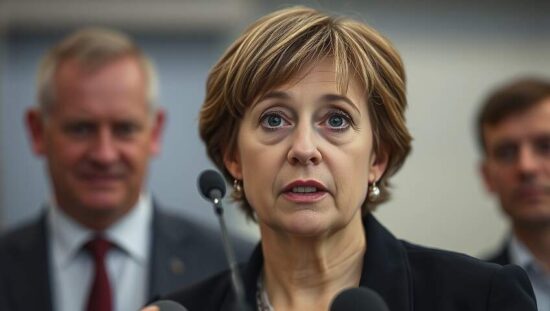The leader of the Left party, Ines Schwerdtner, has sharply criticized the provisional failure to reduce electricity taxes for all consumers. Schwerdtner stated that the actions of the CDU regarding electricity taxes are “an insult to hard-working people.
She accused the CDU of engaging in political maneuvering, first agreeing with the SPD on unilateral relief for corporations, then seemingly undermining the SPD by proposing a trade-off of private household relief against cuts to the citizen’s allowance and finally reaching an agreement with the SPD on electricity tax relief “when there is money available.
Schwerdtner argued that relief contingent on financial availability is merely a postponement of assistance. She asserted that government spending priorities appear to favor corporate benefits and military expenditures over providing relief to the majority of the population, characterizing this approach as a “conjunkturprogramm for frustration and a rightward shift.
The Left party leader called on the federal government to prioritize “tangible relief for the majority” instead of allocating funds to corporations. She suggested measures such as lowering electricity taxes, removing value-added tax on food and implementing a rent cap. Schwerdtner emphasized that these measures could and must genuinely alleviate financial burdens and criticized the attempt to pit lower-income individuals against those with slightly higher incomes through adjustments to the citizen’s allowance.
Schwerdtner also suggested that financing for these measures could be found by eliminating tax breaks that primarily benefit the wealthy and by introducing a wealth tax.
Peter Adrian, President of the German Chamber of Industry and Commerce (DIHK), also expressed disappointment following the coalition committee’s decision not to reduce electricity taxes for all companies and consumers. Adrian told Funke Mediengruppe that the government’s decision represents a “loss of trust in politics” among those affected. He stressed that policy should consider all companies, not just manufacturers, as they are also significantly impacted by high energy costs.
Adrian urged the federal government to take further steps to ease the burden on the economy. He noted that promises of economic revitalization and relief, coupled with planned billions in debt for investment, had yielded “little to nothing” for businesses so far. He called for “real reforms” to address excessively high international costs in areas like energy, labor and lengthy approval processes.





